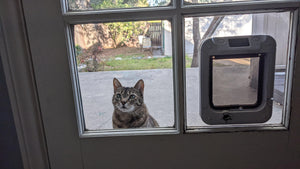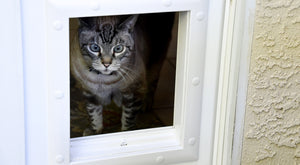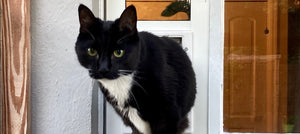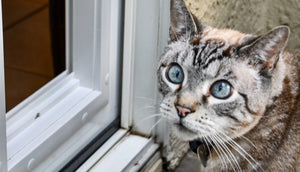Why Do Cats Lick You?
When it comes to dogs, we generally accept them licking us with their slobbery tongues as a sign of affection. But is the same true for cats? When a cat licks you, is it also a sign of affection?

Unlike dogs, a cat’s tongue is known for its rough, sandpaper-like texture. One swipe can irritate your skin, or leave you feeling a little scratched up. While a cat’s lick is unpleasant, it’s also not a sign of distrust or hatred either.
Generally, when your cat licks you, it’s not a secret code about their true feelings for you. Typically, they’re just being a cat.
However, there are a few common reasons why cats would want to lick you.. While it’s nothing to be concerned about, it’s still fun to know why your cat decided to give you a tiny lick.
So what are the four reasons why your cat would want to lick you?
Your Cat Thinks You’re Dirty
This is the most common reason people believe a cat would want to lick you. If you aren’t aware, cats generally view humans are bigger, less competent versions of themselves. And they can often be a little horrified with how bad we are at being felines.
Your cat might view you as another kitten, who aren’t known for keeping themselves clean. And your cat probably hasn’t seen you lick the dirt off of you either, making them believe that you are unhygienic. So it will be your cat’s job as the responsible parent of the brood to groom you.
This is where your cat’s rough tongue comes in handy. Cat tongues are covered with tiny, hook-shaped spined called papillae, which catch onto a cat’s fur as they lick themselves. The spines are great for not only detangling fur, but also helping saliva wash away dirt.
Your Cat Wants To Mark You As Their Territory
Dogs are known for peeing in places that they want to mark as their own, but cats have a far more refined method of marking an object as their own. To claim ownership over a toy, chair, or even a human, cats will try to use the scent glands in their cheeks, feet, and tail to cover it with a special scent.
Licking is only one way your cat can spread their scent. Your cat may also rub their bodies against yours or nuzzle you with their face.
While it may seem demeaning to allow your cat to claim you as their property, this is actually a huge honor and a sign that your cat loves you dearly!
Your Cat May Have Been Weaned Too Early
If you haven’t raised a cat since kittenhood before, you may not know that separating a kitten from their mother before they are at least 8 weeks old can results in long-term stress (though other groups recommend waiting until a kitten is at least 12 to 14 weeks of age).
Cats have many ways that they deal with stress, some that you may already be familiar with, such as kneading and sucking on soft things nearby. But they also can work through stress by licking soft things as well.
Soft things can include anything from their bed to a soft blanket, but in this case, you might find your cat putting their mouths on your finger or earlobe. This behavior is so common that it’s often called “wool-sucking.”
To reduce the chances of long term stress and wool-sucking, make sure any kitten that you adopt is not adopted too early.
Your Cat Just Might Want Your Attention
When you think about it, licking is one of the most effective ways to win someone’s attention. A cat’s rough tongue is hard to ignore and an experience pet own may be able to ignore a cat’s meowing for longer than a cat may prefer.
Generally, if your cat is licking you for attention, it’s only for minor issues. They may want you to feed them sooner, give them space to cuddle, retrieve a lost toy from a hard to reach spit, or just want you to empty the litterbox.
However, make sure you’re on the lookout for any significant signs of stress accompanying your cat’s need for attention. This can include refusing to eat food, increased potty accidents around the home, and hiding from the rest of their family.
All in all, your cat licking you isn’t a major cause for concern. If anything, it’s a sign that your cat cares about you deeply. But you should always be vigilant for any signs of distress, especially if your cat is coming to you for comfort or attention more than normal.




